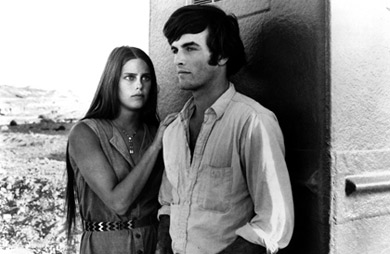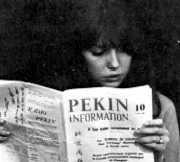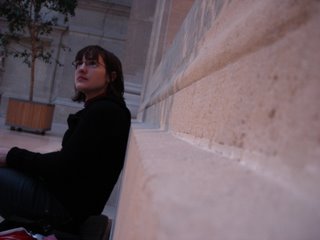
Shadows (John Cassavetes 1959/60)
The technicalities of existentialism. In opposition to the classical notion of I think therefore I am, existentialism believes in our existence before our thoughts. Our existence or identity can not be defined by thoughts alone but influenced by our environment and hence is fluctuating and not static. Rather than simply being a measure of who you are, there is a temporal and spatial component to identity. Identity is a
vector defined by the path it takes or in other words the space through which it travels.
The influence of existentialism in the making of 'Shadows' by Cassavetes is most obvious through the actions of the main characters Hugh, Benny and Lelia. In order to emphasise existentialist ideas of a fluctuating identity Cassavetes has implemented several technical ploys involving the camera, setting and dialogue.
The film follows the everyday occurrences of African American siblings Hugh, Benny and Lelia living in a Manhattan apartment. Hugh, who is clearly African American by the colour of his skin, is a nightclub singer who travels from city to city getting gigs as third class billing and is a kind of patriarch to his younger brother and sister. Benny is a beatnik and a jazz musician. Passing for white he chooses to hang around with white friends and is a thinker not a doer like Hugh. The character of Lelia, whose skin colour is also ambiguous, is shaped by her romantic pursuits first with David an older intellectual, smooth Tony and finally African American Davey. Each of these characters display the transient nature of identity and how the people who surround us influence the way we think of ourselves.

This dilemma of identity seems to belong to the urban environment. Cassavetes shoots on the actual streets of Manhattan and in central park. The streets are busy and fluctuating parallel to the identities of the characters. The apartments are also crowded. In the intellectual party the camera follows the atmosphere of the rooms not necessarily focusing in on the main characters. Instead the camera eavesdrops on a conversation about existentialism
(Only on second viewing did I realise it was Tony trying to chat up one of the existential intellectuals). In the later party scene at the siblings apartment the camera captures snapshots of their conversations. Lelia and her friend, her brother and his manager. We also see David amongst the crowd again wanting to talk to Lelia but leaving shortly after. The reluctant Benny hovers on the periphery until he is forced to converse.
In contrast to conventional cinema, Cassavetes does not shoot entire conversations nor include only those parts most relevant to the plot. The action of picks up mid conversation and includes seemingly meaningless conversations such as Benny's friend Tom's hang over in the coffee shop or Benny's story about 'The Bird" (Charlie Parker). Dialogue adds not to the plot but embellishes both the nature of the characters and the environments in which they are found. In front of the girls Tom is talkative and persuasive, with his friends the next day he jokes and complains. With only his sister around Benny gossips about a musician he admires in crowded rooms he is withdrawn.
Lelia has the most noticeably transient identity for filling the roles of intellectual, lover, little sister, friend and maneater. Her race and gender only become part of her identity when her environment determines it. When Tony rejects her because of her african american heritage and when Davey tells her to stop being masculine and her friend tells her she needs a nice man, a home and some babies. Although at the end of the 1950s miscegenation and independent women were taboo, I think 'Shadows' is not specifically about these delicate and historical issues. Instead it is an attempt to capture history from from the perspective of people who are unaware of their role in society let alone in history.
 The sixties are over, the revolution failed and technology consumes us as we consume technology.
The sixties are over, the revolution failed and technology consumes us as we consume technology.






